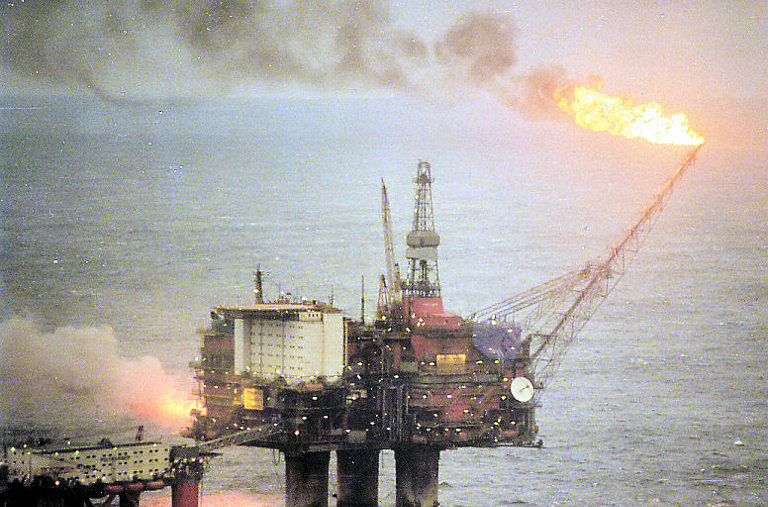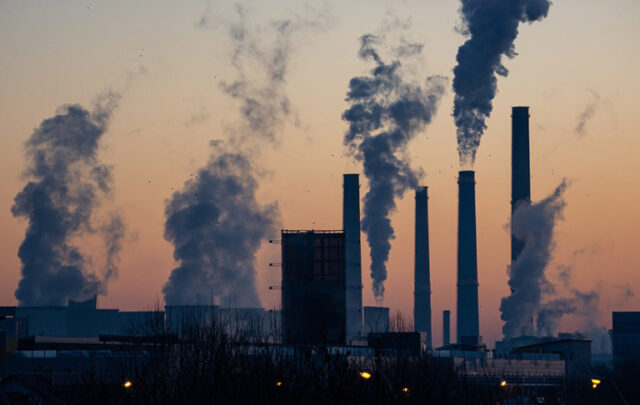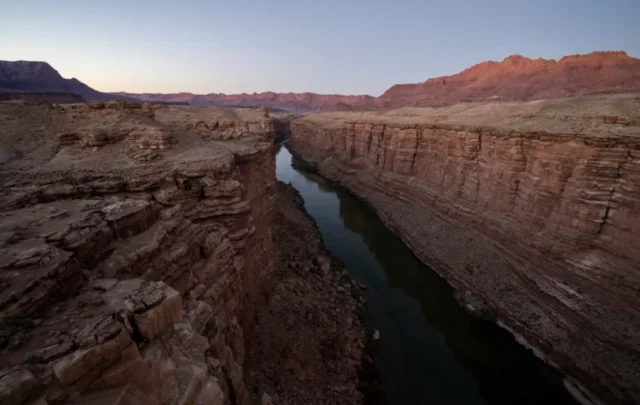All, or almost all, European states bear some form of responsibility for reinforcing the Russian government’s willingness and ability to launch an assault on democracy, with horrific consequences for Ukraine.
Systematic legal, political and economic impunity has strengthened the Kremlin’s belief that it can impose its policies not only on perceived enemies in Russia, but across the region and the world.
In general, the European approach to Russia under Vladimir Putin has been based on the ‘Ostpolitik’ of the Federal Republic of Germany. Developed during the Cold War, this policy was reflected in the phrase “wandel durch handel”, or “change through trade”.
Trade with the Soviet Union, especially based on import of oil and gas to European markets, would increase stability by fostering mutual economic dependence. The relatively peaceful ending of the Cold War lent credence to this belief.
It has been similarly believed in more recent years that investments and trade with Russia would contribute to the softening of Putin’s policies, though these were manifest already in 1999 when he became prime minister. The internal armed conflict in Chechnya was accompanied by grave, systematic and widespread crimes committed by Russian forces. Human rights groups called for accountability. Sergei Kovalyov from Memorial, the Russian rights group that was awarded this year’s Nobel Peace Prize, warned that “the year 2000 will be known as the twilight of Russian freedom”.
European states, however, mostly chose to ignore the carnage in Chechnya and the creeping coup against the Russian Constitution launched by the Putin regime. To an extent, the West became Putin’s economic enablers. Enormous sums flowed out of Russia, siphoned from enterprises controlled by the allies of the Kremlin. Tax havens and Western financial instruments helped the Russian elite to launder money, avoid taxes and secure their assets by investing in Europe and the United States.
All this is well-known. But we have yet to see a more profound discussion of whether this is a sustainable state of affairs or a problem that can be fixed.
States like ours, Norway, should reexamine their policies with regard to Russia, and other kleptocracies, and see if there are lessons to be learned.
While Norway has long been a key supporter of human rights and the rules-based international order, the Norwegian state has a long history of investing in Russia and partnering with Putin’s allies, especially in the field of oil and gas.
Some of Russia’s oligarchs, like Mikhail Fridman and Petr Aven, were present on the Norwegian continental shelf via their LetterOne investment company until the summer of 2022.
Same for companies that are central to Putin’s power vertical, such as Rosneft and Lukoil. Was it wise to let entities that had bankrolled Putin’s wars and repressions for years operate with impunity here?
In 2012, the international oil major Equinor (formerly Statoil) established a “strategic partnership” with Rosneft, the Russian state oil company run by Putin’s close associate Igor Sechin. The Norwegian state has a majority stake in Equinor.
Rosneft’s strong position in Russia is based on the acquisition of the assets of Yukos, which was Russia’s largest oil company before Putin imprisoned the owner, Mikhail Khodorkovsky. In 2014 the European Court of Human Rights ruled that the Yukos takeover violated the European Convention on Human Rights, and awarded the Yukos complainants a record €1.9bn (£1.64bn) in compensation. Russia has refused to execute the judgment.
The “strategic partnership” between Equinor and Rosneft continued after sanctions were imposed on Sechin personally, and the Russian oil and gas industry in general, in the wake of the occupation of Crimea in 2014. The relationship was finally discontinued after the large-scale invasion in February 2022.
While Norway has a stated interest in protecting human rights, fighting corruption and reducing global warming, Rosneft’s record shows that it is interested in the exact opposite. Was it wise to let Equinor partner with Vladimir Putin’s arm in the oil markets?
After the large-scale invasion in February, the Norwegian Sovereign Wealth Fund – better known as the Oil Fund – stated that it would divest from Russia. At the time, the Oil Fund’s portfolio in Russia was worth around €3bn (£2.6bn). It will probably be difficult for the fund to recover its investments in Russia. More worrying, in our opinion, is the fact that the fund had invested in some of the most notorious companies in Russia, such as Sberbank, Gazprom and Surgutneftegaz.
These companies are close to the Kremlin. They are associated with corruption and human rights abuse. They were all sanctioned after 2014. The Oil Fund, which is responsible for investing revenues from Norway’s oil and gas resources, is seen internationally as a responsible investor. In March 2022, for instance, it excluded the Chinese sportswear company Li Ning “due to an unacceptable risk that the company is contributing to serious human rights abuses in Xinjiang”. The fund has divested from a number of other companies for similar reasons. Yet it chose to invest in Russian companies that violate the fund’s own ethical standards.
Obviously, we do not think it was wise to let the Oil Fund invest in Russian companies that are integral to the Kremlin’s war on liberal democracy. Norway’s support for human rights in Russia has consistently been undermined by its willingness to do business with the Kremlin. A hundred years ago, Lenin allegedly said that “the capitalists will sell us the rope with which we will hang them”. Putin could have said the same thing, and today Ukraine is paying the price.
We believe that Europe enabled Russia’s descent into fascism. Norway, too, played a role in this. Liberal democracies are resilient and strong because they are able to confront painful issues and change. Consequently, we hope and believe that Europe, and Norway, can do better in the future.
There must be accountability for crimes. There must be a reckoning of failed policies. And there should be appropriate safeguards in place, so that state-owned Norwegian enterprises do not invest against the interests of human rights, democracy and security.
Teaser photo credit: By User:Jarvin Jarle Vines – no:wikipedia, Public Domain, https://commons.wikimedia.org/w/index.php?curid=897168





